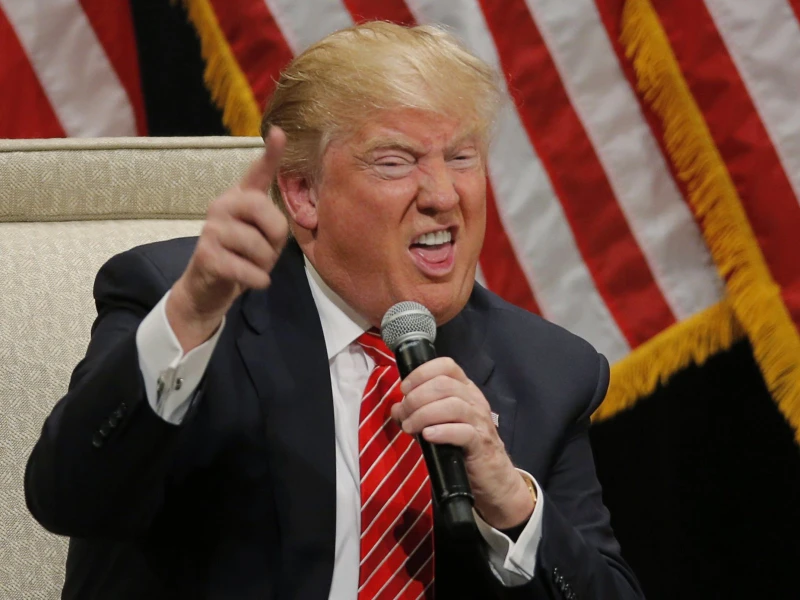Diplomatic Disaster: Trump and Vance's Confrontation with Zelenskyy Raises Alarms
As tensions escalate in U.S.-Ukraine relations, the Oval Office clash reveals a troubling shift in American foreign policy that could jeopardize crucial alliances.
The recent Oval Office meeting between President Donald Trump, Vice President JD Vance, and Ukrainian President Volodymyr Zelenskyy has become a focal point of controversy. What was expected to be a diplomatic engagement turned into an unexpected confrontation that left many questioning the dynamics of U.S.-Ukraine relations. The heated exchange not only caught the attention of political analysts but also sparked widespread concern about the implications for international diplomacy.
Leading up to this contentious meeting, tensions had been simmering in U.S.-Ukraine relations. Previous diplomatic engagements had already set a precarious stage, with Ukraine seeking continued support against Russian aggression and the U.S. administration under Trump showing signs of shifting its foreign policy stance. This backdrop made the Oval Office encounter all the more significant.
Vice President Vance played a pivotal role in this meeting, adopting an assertive stance on issues related to Ukraine's ongoing conflict with Russia. Known for his critical views on foreign aid to Ukraine, Vance did not shy away from expressing his opinions during the discussion with Zelenskyy.
The exchange between Vance and Zelenskyy quickly escalated into a verbal sparring match. "What kind of diplomacy are you speaking about?" Zelenskyy challenged Vance after being accused of disrespectful behavior in the White House. In response, Vance retorted that it was "disrespectful" for Zelenskyy to litigate such matters publicly in front of American media.
President Trump's support for Vice President Vance during this confrontation highlighted their shared views on diplomacy with Ukraine. Trump's defense of his vice president included demands for greater gratitude from Zelenskyy towards U.S assistance and warnings about potential global conflicts if diplomatic efforts were not appreciated.
Political analysts have been quick to weigh in on this public dispute's implications for future U.S.-Ukraine relations. Many see it as indicative of a broader shift in American foreign policy under Trump's leadership - a move towards more transactional relationships rather than traditional alliances based on mutual interests.
Congressional leaders and experts have voiced strong criticism over Trump and Vance's conduct during the meeting, labeling it detrimental to diplomatic efforts with Ukraine at such a critical juncture. "President Trump now appears to have cancelled what could have been a fruitful negotiation," stated Congresswoman Betty McCollum.
The confrontation between Vice President Vance and President Zelenskyy has raised significant concerns about the future of U.S.-Ukraine relations, particularly in terms of negotiations and aid packages. Critics argue that such aggressive tactics could jeopardize ongoing support for Ukraine at a time when it is most needed. "This kind of behavior undermines trust," said former diplomat Richard Haass. "It sends a message to our allies that we may not be as reliable as they once thought."
"The path to peace and the path to prosperity is maybe engaging in diplomacy." - JD Vance
"What kind of diplomacy, JD, you are speaking about? What do you mean?" - Volodymyr Zelenskyy
Historical precedents suggest that diplomatic missteps can have long-lasting consequences. The infamous 1961 Vienna Summit between Kennedy and Khrushchev is often cited as an example where poor communication led to increased tensions during the Cold War. Similarly, experts warn that this recent Oval Office incident could lead to strained relationships not only with Ukraine but also with other European allies who view U.S. support as crucial.
Within American politics, this event highlights ongoing power dynamics under Trump's administration, where assertive foreign policy stances are often prioritized over traditional diplomatic approaches. Some supporters argue that this approach is necessary for honest dialogue about U.S involvement in foreign conflicts like Ukraine's war with Russia.
However, critics caution against conflating assertiveness with effectiveness. Congresswoman Betty McCollum stated: "President Trump now appears to have cancelled what could have been a fruitful negotiation... It was a missed opportunity." Her comments reflect broader concerns among those who fear that confrontational tactics might undermine efforts toward achieving lasting peace.
Public opinion may also shift following this incident, especially among voters concerned about national security issues. While some Americans appreciate strong leadership on international matters, others worry about potential risks associated with alienating key allies or escalating conflicts unnecessarily.
As the dust settles from this controversial meeting, questions remain regarding its lasting effects on American diplomacy moving forward. Will future administrations adopt similar approaches when dealing with contentious international issues? Or will they seek more collaborative solutions?
Ultimately, while there are arguments both for and against the strategies employed by Trump and Vance during their encounter with Zelenskyy - one thing remains clear: how these decisions impact global perceptions of U.S leadership will be closely watched by observers around the world.
